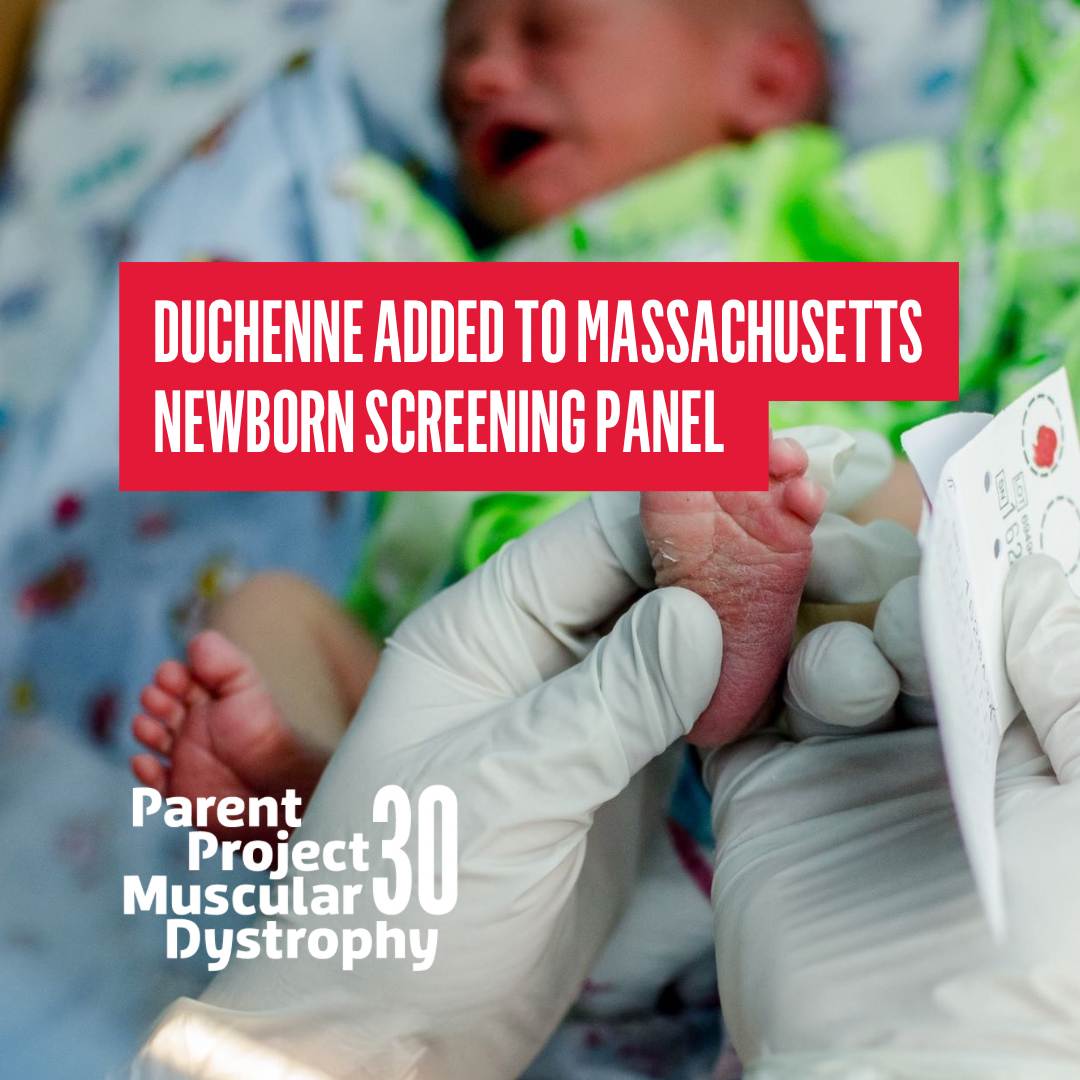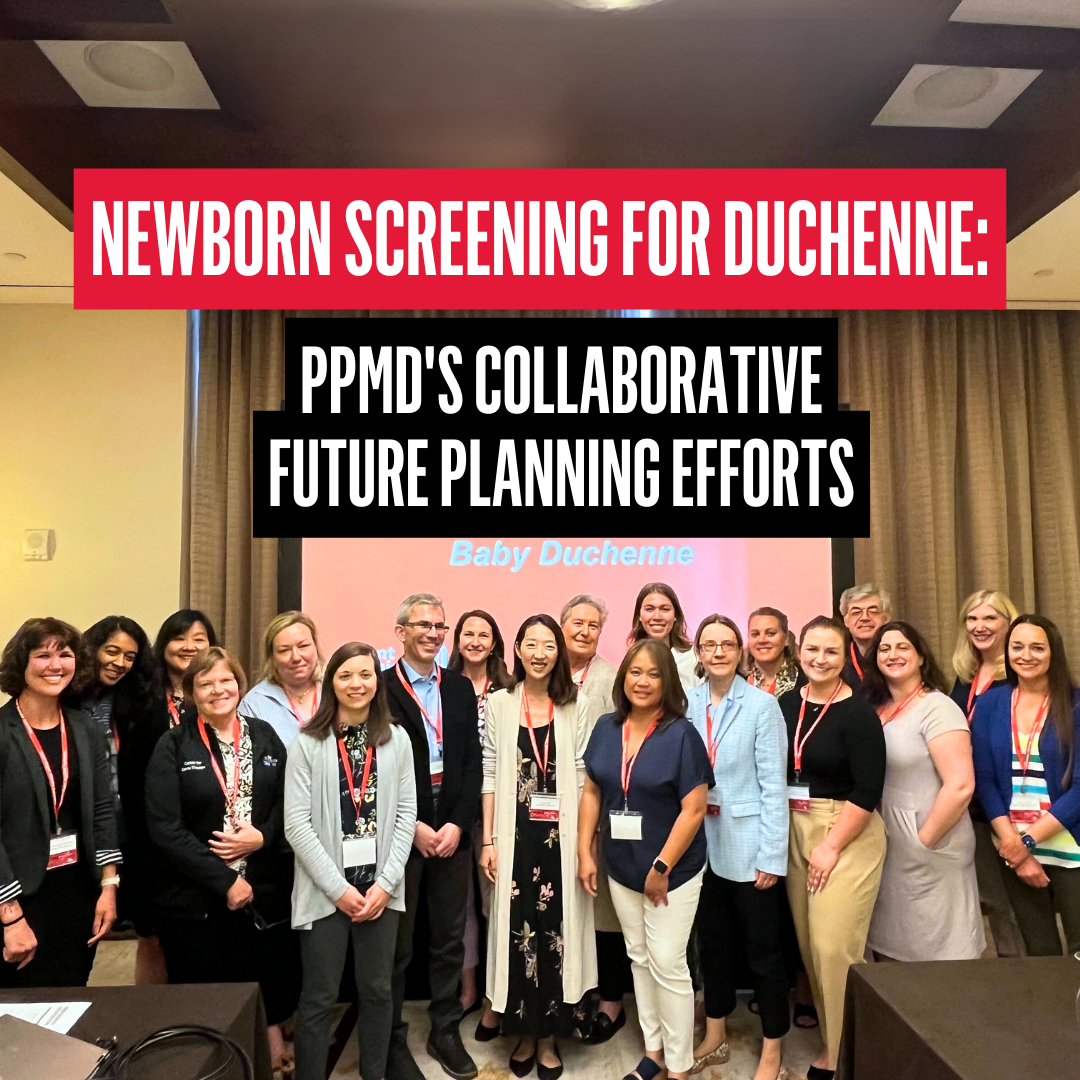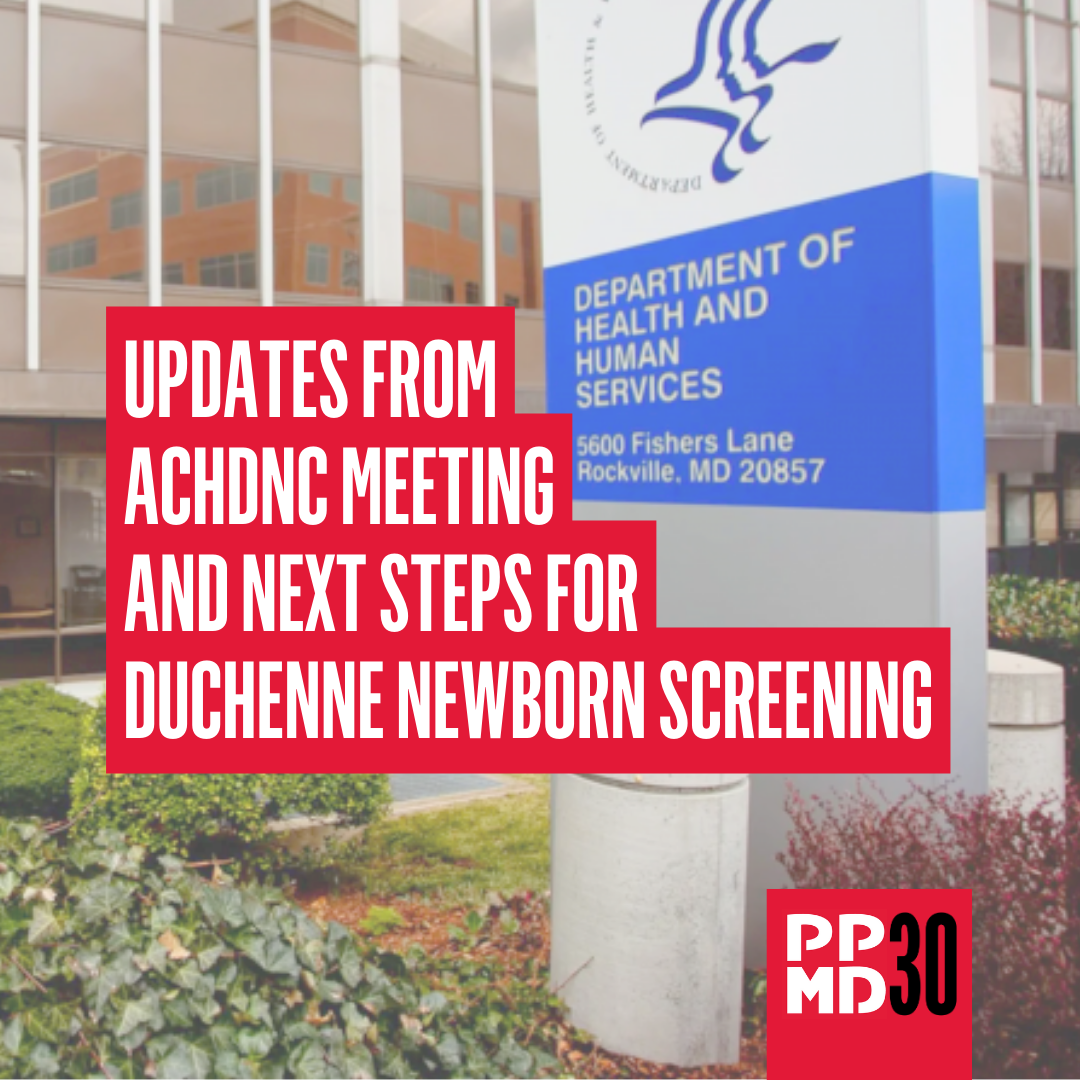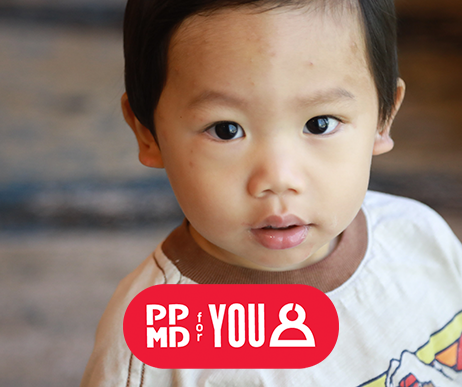
Duchenne Newborn Screening Action Center
Newborn screening aims to prevent families from experiencing diagnostic delays and ensure that every family receives timely, supportive, accurate resources at the time of diagnosis. Right now, the drug pipeline is full of promising new therapies, and because of the progressive nature of Duchenne and Becker, it’s imperative that people diagnosed are offered therapeutic interventions as early as possible to ensure the best possible outcomes. For over a decade, PPMD has spearheaded efforts to establish nationwide newborn screening for Duchenne to address this need.
Click on the map below to learn about each state’s Duchenne newborn screening status and find out how you can get involved in advocating for newborn screening in your state.
Newborn Screening by State
- Approved & Implemented Screening
- Approved, Not Yet Screening
- Legislation/Committee Pending
- No Activity
Become a PPMD Advocate
If you are interested in supporting state or federal efforts for Duchenne newborn screening, sign up to become a PPMD Advocate.
Sign up form

Get Involved
Support adding Duchenne to the Federal Recommended Uniform Screening Panel (RUSP)
PPMD has submitted a nomination package to the Recommended Uniform Screening Panel (RUSP), requesting that Duchenne be a condition recommended for nationwide newborn screening. As the Duchenne RUSP package continues through the evidence review period, we will need help from the community in supporting state and federal newborn screening efforts. If you are interested in sharing your story or contacting your state elected officials, please fill out this interest form.
Learn MoreNewborn Screening Advocacy Toolkit
Download resources to support Duchenne newborn screening efforts
Downloadable resource about the impact of Duchenne newborn screening.
60+ leading experts have authored a consensus statement in support of implementing Duchenne newborn screening.
Informational white paper written by World Duchenne Organization.
Positive Newborn Screen Resources
The Duchenne journey is complex, but PPMD is here for you. If you have just received a positive screening for Duchenne or Becker, resources are available.
FAQs
Duchenne muscular dystrophy and Becker muscular dystrophy are among a spectrum of muscle diseases known as “dystrophinopathies” that are caused by a variant (change) in the DMD gene that encodes for a protein called dystrophin. The progression of symptoms through the dystrophinopathies is on a spectrum, ranging from early onset symptoms and quicker progression (Duchenne muscular dystrophy) to later onset symptoms with slower or more variable progression (Becker muscular dystrophy). Carriers of the condition may also experience a range of symptoms.
Without functional dystrophin protein, muscles become damaged and are unable to repair themselves properly. This genetic disorder can be passed from parent to child, or it can result from a random spontaneous genetic mutation. In fact, most cases occur in families with no previous history of Duchenne. Duchenne progresses differently for every person, but it ultimately results in loss of muscle function.
PPMD’s mission and work extends to all of the dystrophinopathies, including those diagnosed with Duchenne, Becker, and carriers. For simplicity, we often use the term Duchenne to refer to any condition caused by variants in the DMD gene.
Approximately 360 babies with Duchenne are born each year in the United States. Without newborn screening, the typical family will notice symptoms of Duchenne in their child by age 2, yet most of those families will not receive a diagnosis until age 5. This delay is even longer in families of color and low socioeconomic status. Evidence of muscle damage is present in infancy. By age 5, children with Duchenne have significant and irreversible muscle damage.
There are now eight FDA-approved treatments for Duchenne, four of which are approved for use in infancy. Newborn screening can eliminate the delay in diagnosis and provide families the opportunity for treatment years earlier, when children have more functional muscle tissue remaining.
The first-tier screen for Duchenne evaluates CK-MM, the muscle isoform of creatine kinase. CK-MM is a biomarker of muscle damage and is highly elevated in newborns and children with Duchenne. In the event of elevated CK-MM, confirmatory testing—DNA sequencing of the dystrophin gene, DMD—is required. The presence of a pathogenic variant in DMD confirms the diagnosis. Both the screening and confirmatory test can be performed on the standard NBS dried blood spots, with no additional blood draw required.
Duchenne is currently under consideration to be added to the RUSP. In May 2024, the Advisory Committee on Heritable Disorders in Newborns and Children (ACHDNC) unanimously voted to postpone its decision for up to one year on whether to recommend Duchenne for inclusion on the RUSP until additional evidence is available to make a decision. PPMD is actively working with key opinion leaders (KOLs) and clinicians to bring forth additional data and we anticipate learning more from the states who have and will begin screening.
While the federal RUSP is an important tool to help create equality among state newborn screening programs, it remains only a recommendation regarding what conditions states should include for newborn screening. What’s more, with new treatments for many debilitating and fatal pediatric diseases becoming available, the RUSP has not been able to keep pace with science and innovation. While the best-case-scenario timeframe for a condition to be added to the RUSP is 18 months, on average it has taken 4 years for approved conditions to be added to the RUSP. In the 16 years since the RUSP was established, 16 conditions have been nominated for the RUSP, but only 8 have been approved. It typically takes several more years before states add the new conditions and screening begins—time children and families do not have.
An expert group of Duchenne clinicians developed and published clinical guidelines for care following a newborn screening diagnosis. After newborn screening, families consult with pediatric neuromuscular care teams to discuss the most appropriate treatment course for each child. They have the potential to initiate therapies such as exon skipping, gene therapy, and steroids years earlier than they would if diagnosed through traditional pathways. They may be able to enroll in clinical trials.
Establishing care in infancy also enables referrals to early intervention services such as speech, behavioral, physical, and occupational therapy. Newborn screening diagnosis has benefits for the family, including identifying at-risk family members, like carrier mothers who are at risk for cardiomyopathy and siblings who may be carriers or affected. Many families also report using this information in future family planning.
Latest Newborn Screening News

Duchenne Added to Massachusetts Newborn Screening Panel
PPMD is excited to announce another significant milestone: Massachusetts has officially approved the addition of Duchenne to the state’s newborn screening panel! The addition of Duchenne to the Commonwealth’s newborn screen panel was included as an amendment to the Maternal Health bill (H. 4999) that was signed Friday, August 23, by Governor Healey and will be enacted in 90 days.

Newborn Screening for Duchenne: PPMD’s Collaborative Future Planning Efforts
PPMD recently convened a vital meeting of physicians, physical therapists, genetic counselors, data scientists, and other key opinion leaders to discuss the development of data infrastructure and care planning for newborns that screen for Duchenne through state-mandated programs.

Updates from the ACHDNC Meeting and Next Steps for Duchenne Newborn Screening
Members of the PPMD community provided testimony during the Advisory Committee on Heritable Disorders in Newborns and Children (ACHDNC) quarterly meeting. The Committee unanimously voted to postpone its decision for up to one year on whether to recommend Duchenne for inclusion on the RUSP until additional evidence is available to make a decision.






